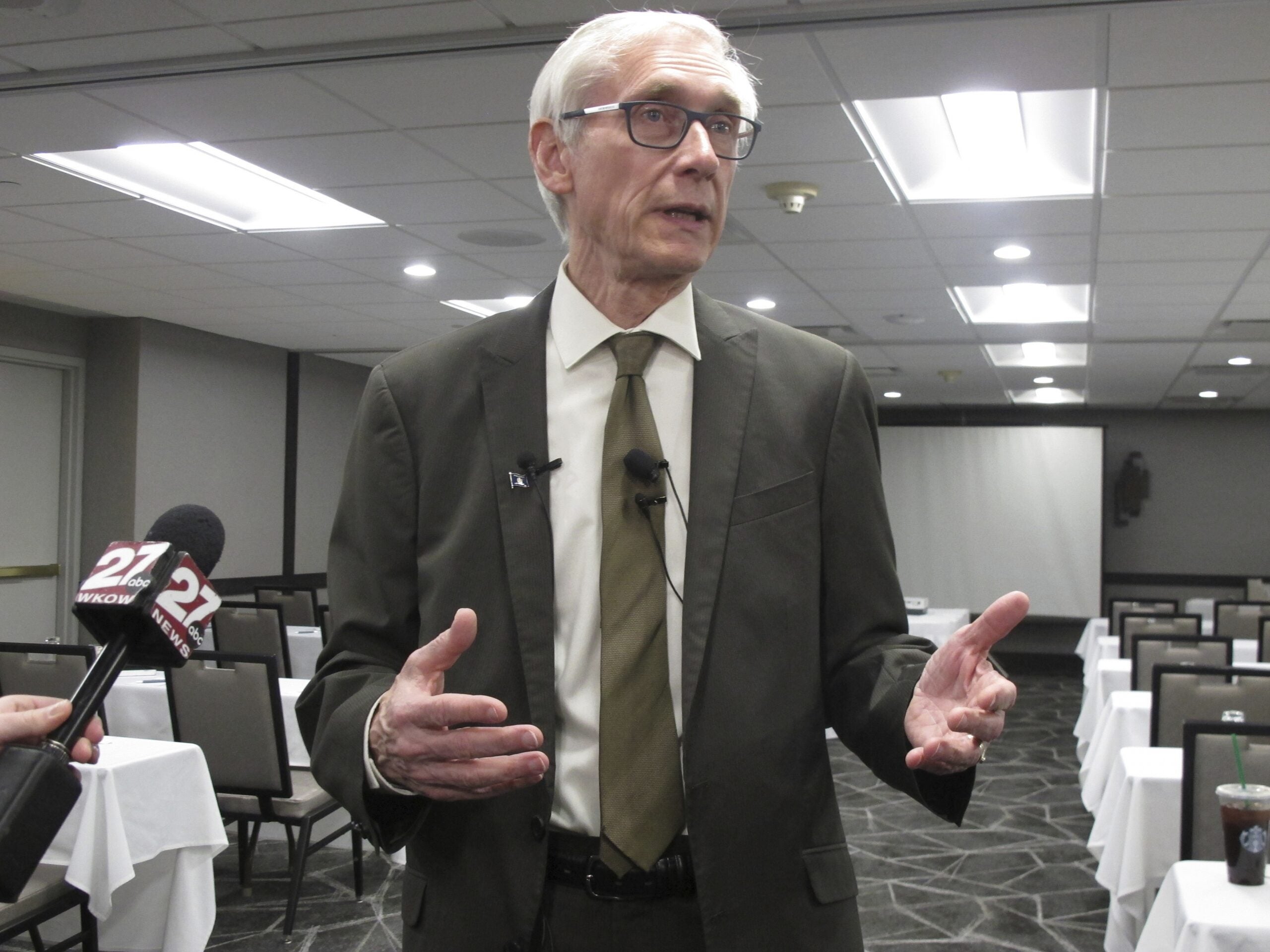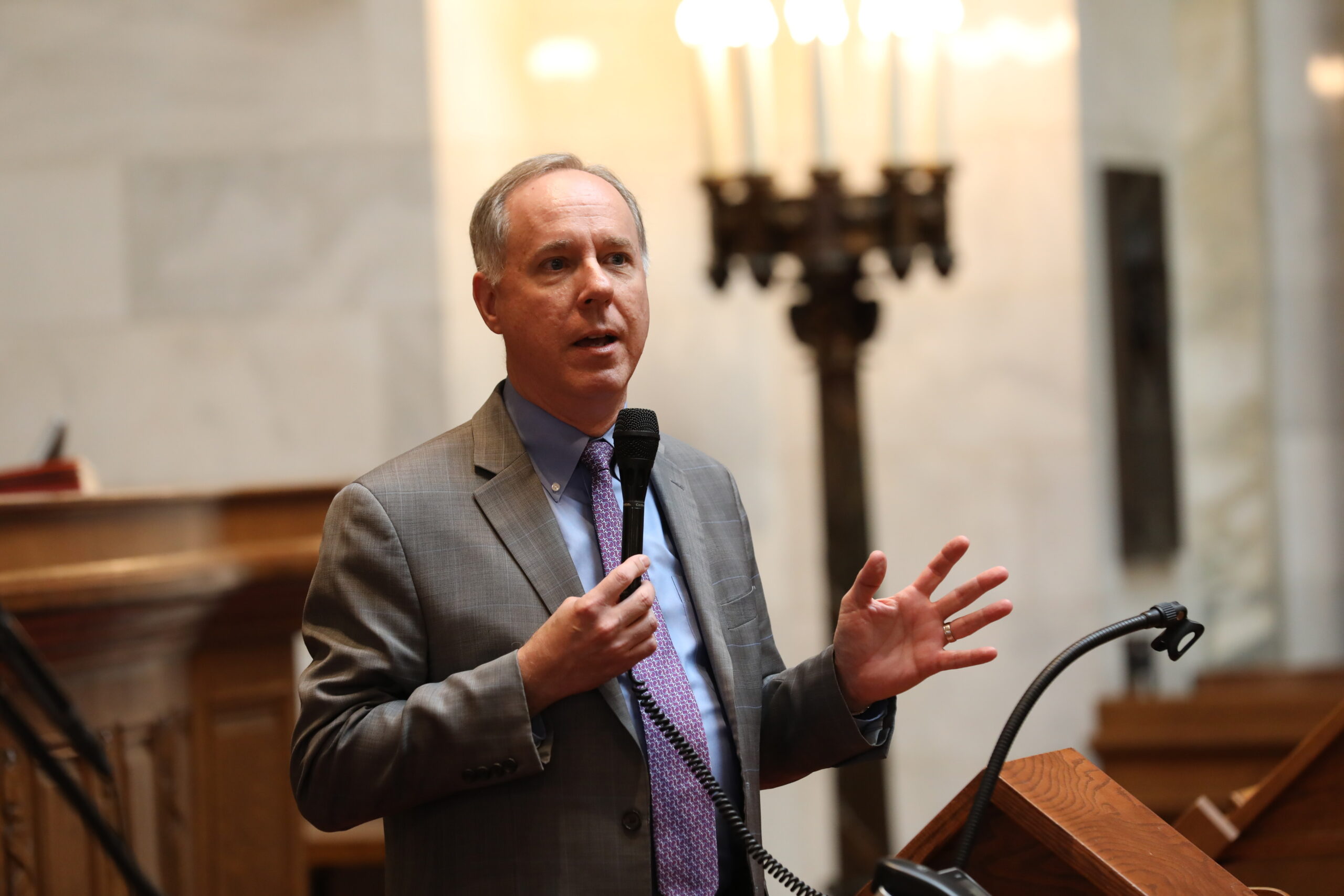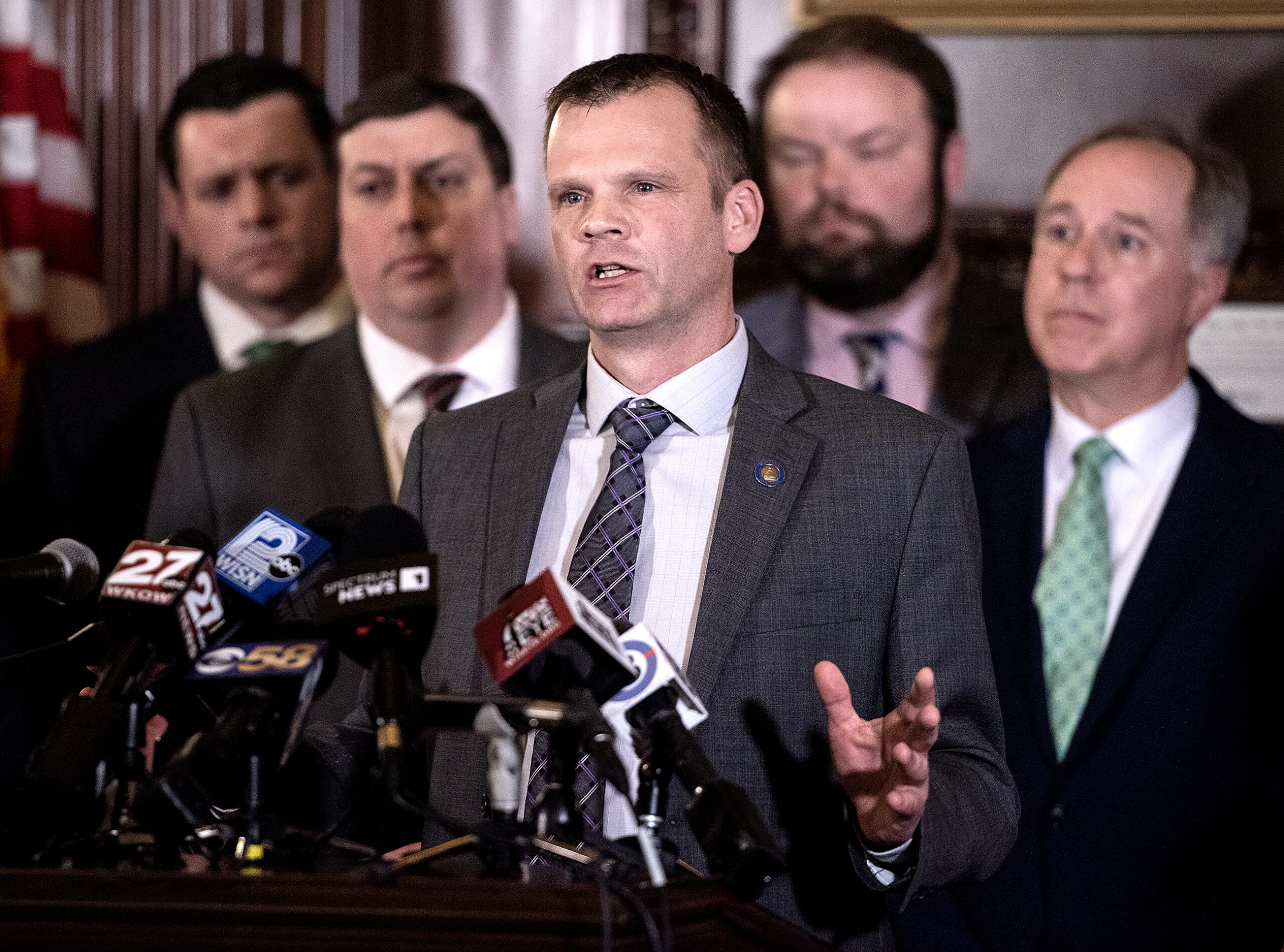Democratic Gov. Tony Evers on Wednesday vetoed the first bill sent to his desk by the Republican-controlled state Legislature — a GOP-backed proposal to cut taxes on middle-income earners in Wisconsin.
In his veto message, Evers said he objected to “passing a major fiscal policy item outside of the biennial budget process, which will begin in less than 10 days.”
The governor also noted the Republican plan, which would have been paid for by unused state funds rolled over from the current budget cycle, didn’t have a funding source past the next two years.
Stay informed on the latest news
Sign up for WPR’s email newsletter.
Evers has been sparring with GOP lawmakers over tax cuts for weeks, as he and Democratic lawmakers back a different plan. Their proposal, also aimed at cutting income taxes for middle-income earners, would be funded by raising taxes on some manufacturers.
Republicans have called that tax increase a non-starter.
In his message, Evers said he hopes to work for a bipartisan solution during upcoming state budget negotiations.
“I am troubled and disappointed that this major fiscal policy was introduced and passed without bipartisan support and cooperation,” Evers wrote. “The people of the state of Wisconsin expect and deserve for their leaders to work together, and I plan to do my part to ensure that happens.”
Republican legislative leaders were quick to push back on the governor’s action.
“Middle-class Wisconsinites deserve a tax break — it’s unfortunate that Gov. Evers is telling them to wait their turn instead of lowering their taxes,” said Senate Majority Leader Scott Fitzgerald, R-Juneau. “Let me be clear with the governor: I will not support raising taxes on our state’s job creators. With our economy expanding and the state running a surplus, we shouldn’t be introducing uncertainty into the industries fueling Wisconsin’s comeback.”
Assembly Majority Leader Jim Steineke, R-Kaukauna, called the veto “disappointing.”
“Our legislation accomplished his campaign promise of cutting taxes on the middle class, and did so without harming our small businesses and job creators,” Steineke said in a prepared statement. “Ultimately, we put forth a good faith effort of bipartisan legislation, and it’s unfortunate to not see Governor Evers’ actions match his words. Despite this step backwards, I remain committed to continuing finding paths to common ground and compromise.”
Under the Republican plan, income taxes would be cut by about $500 million over the next two years by expanding Wisconsin’s standard deduction for individuals who earn up to $127,000 or families who earn up to $155,000.
It would have saved the average taxpayer about $170 a year, according to the Legislature’s nonpartisan budget office.
The Democratic plan, which faces an uphill battle to get Republican support, would reduce income taxes by about $890 million over the next two years by offering individuals who earn below $80,000 and families that earn below $125,000 a 10-percent tax credit.
The plan is only partially paid for — the proposed tax increase on manufacturers would pay for roughly 60 percent of the plan, about $520 million.
Wisconsin Public Radio, © Copyright 2024, Board of Regents of the University of Wisconsin System and Wisconsin Educational Communications Board.






